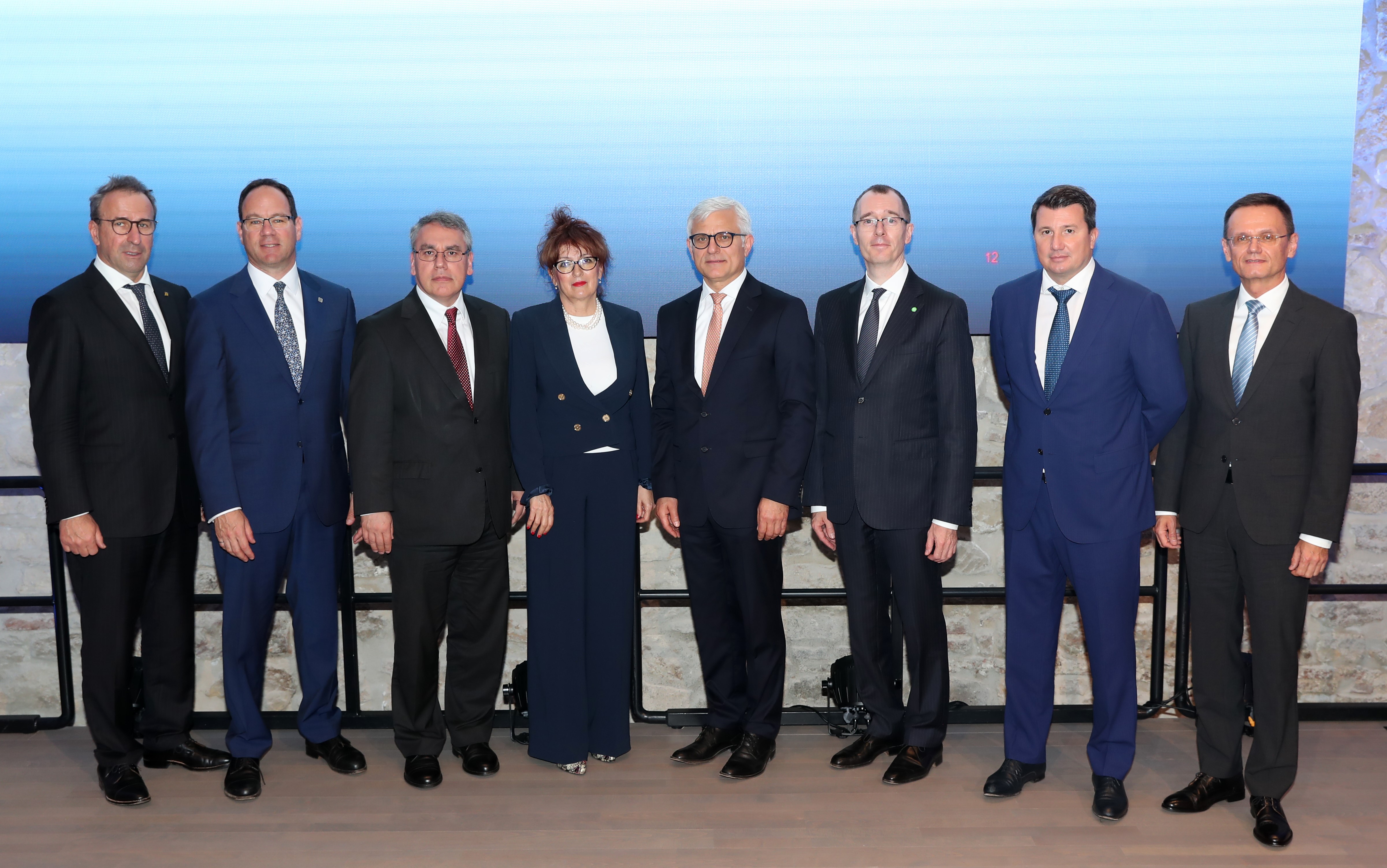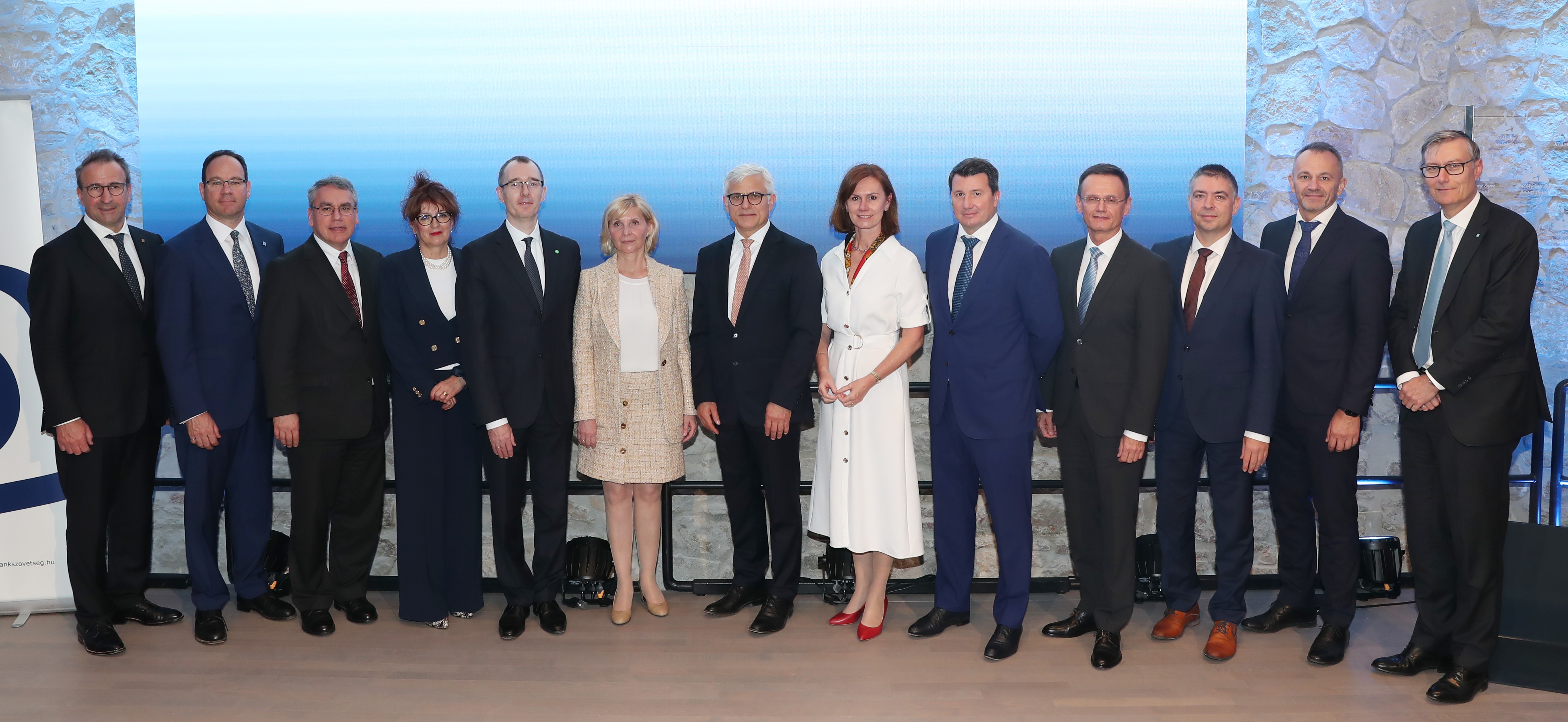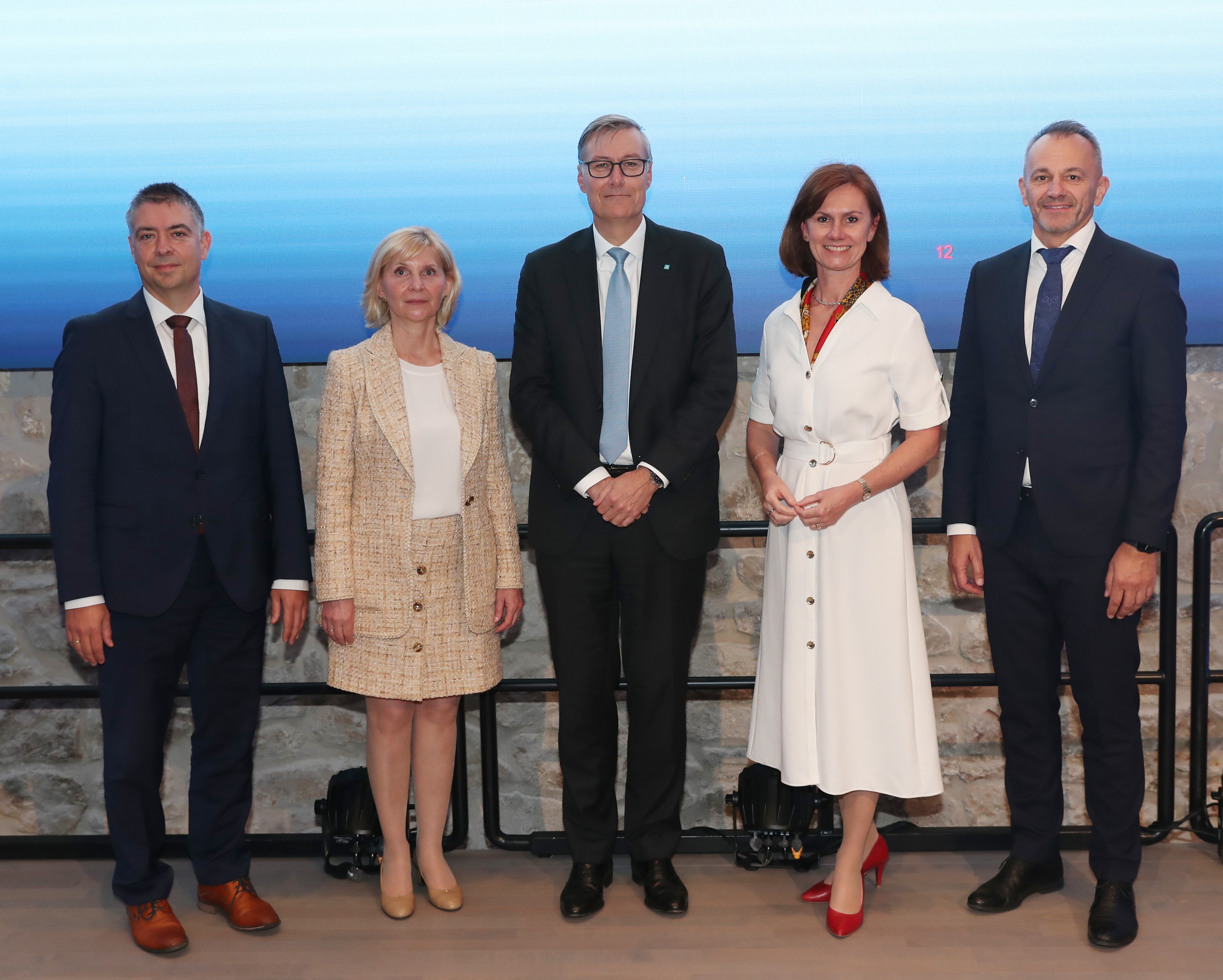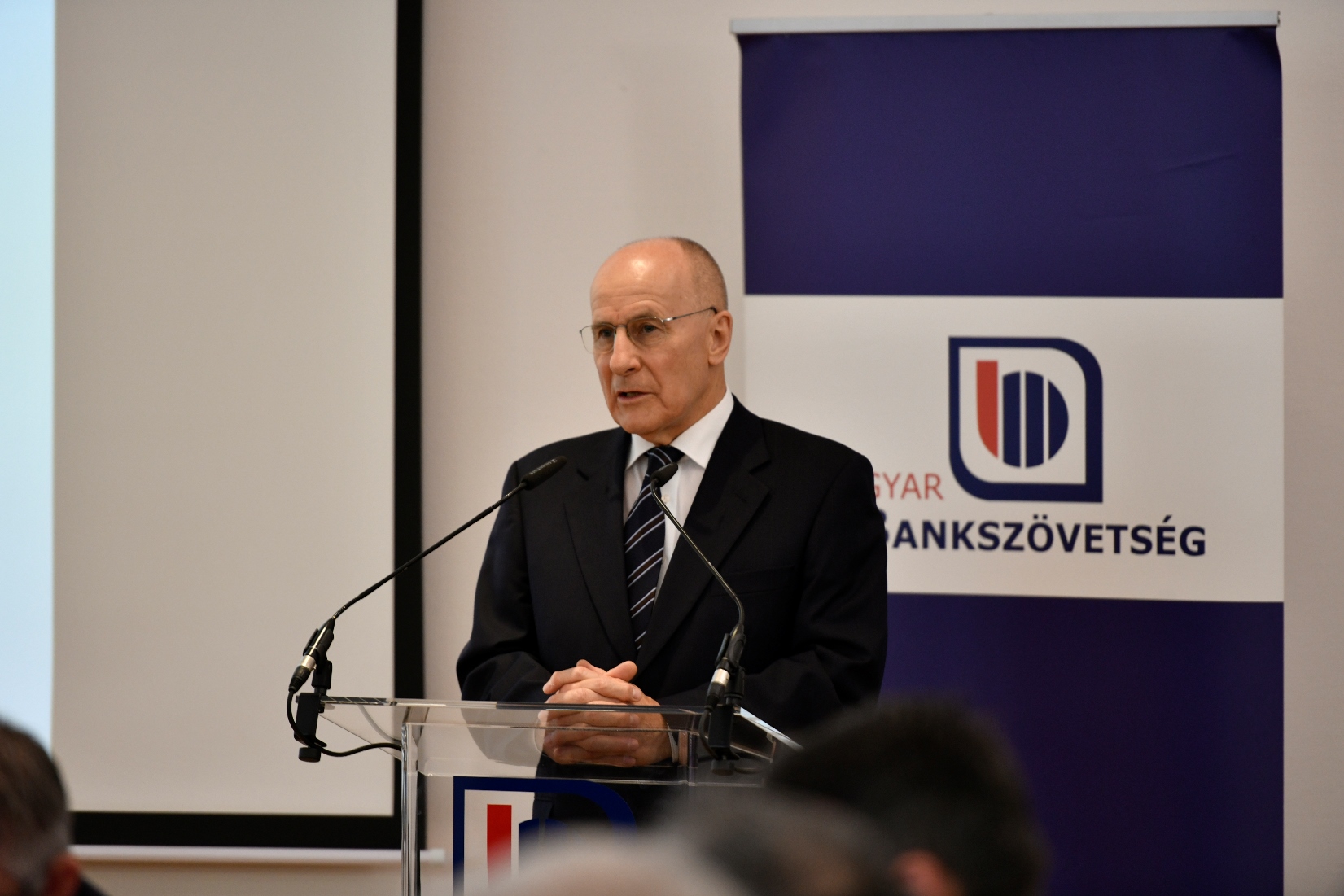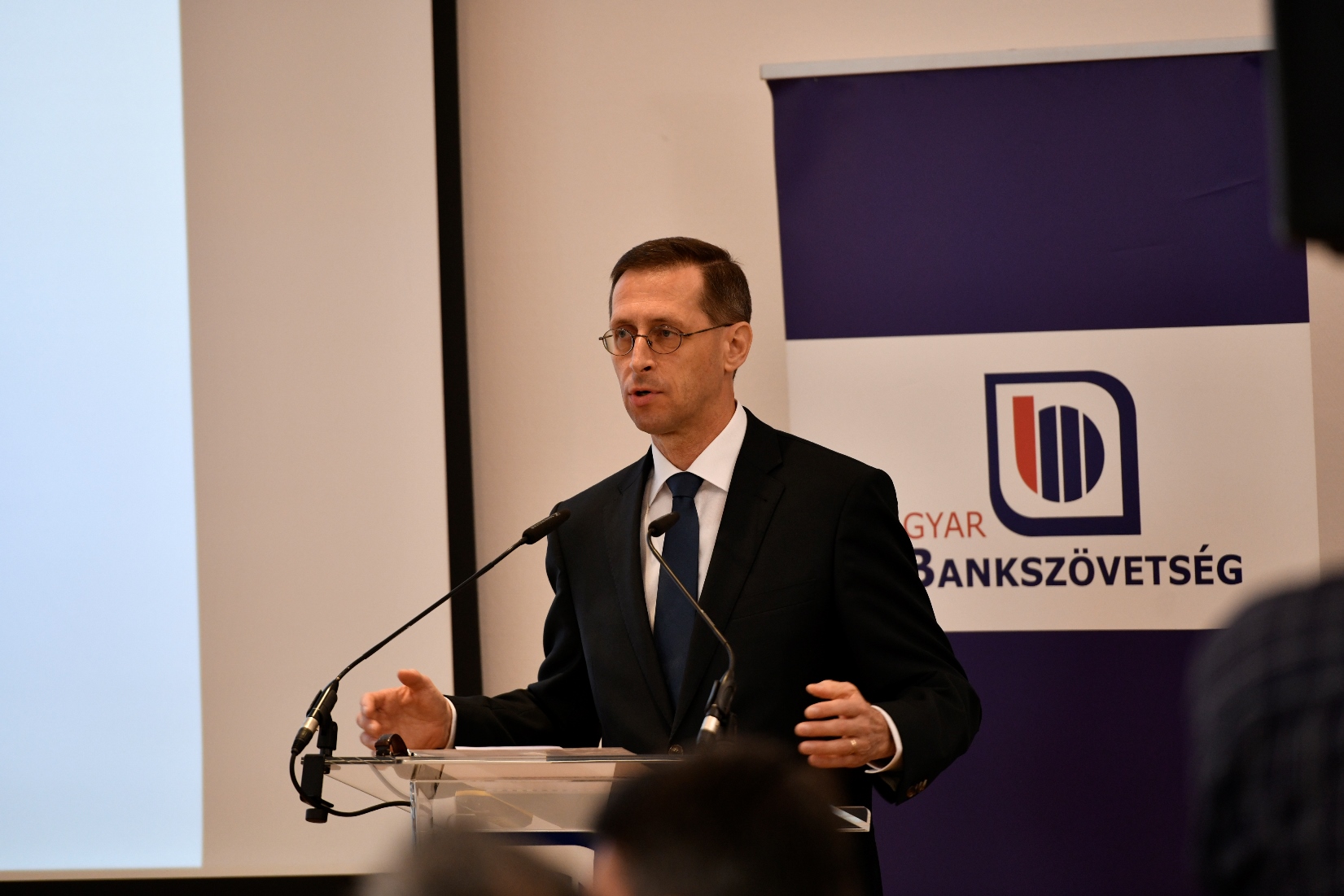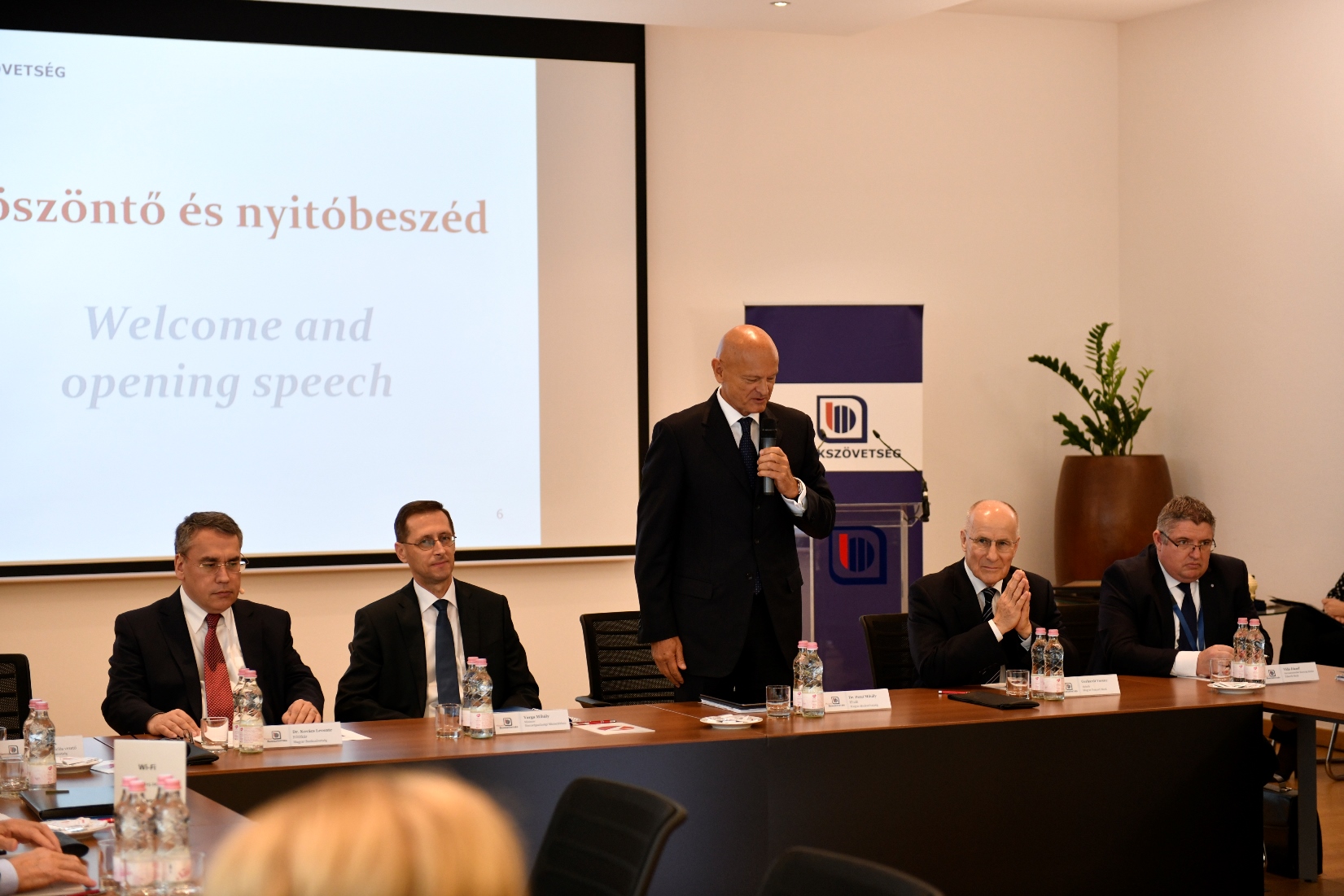Communique issued by the General Meeting of the Hungarian Banking Association
Today, due to the COVID-19 virus emergency, the Hungarian Banking Association held its annual ordinary General Meeting via video conference, which was also a leadership election meeting, due to the expiration of the 3-year terms of office. Minister of Finance Mihály Varga presented an assessment of the economic situation, and greeted the participants of the General Meeting in a video message. On this occasion, Members of the Hungarian Banking Association decided to publish the following position in current economic matters.
The global measures taken in the first half of 2020 with a view to addressing the emergency caused by the COVID-19 virus and protecting human life, clearly marked the end of an economic cycle. Thus, after the financial crisis of 2008, we are again witnessing a general economic downturn, as a result of the emergency. The health issue behind the crisis has led to a number of previously unseen economic phenomena, and has caused the partial or total cessation of production or services in several sectors. Due to the unprecedented nature of the root cause, there are no proven, experience-based approaches available for managing and resolving the crisis.
One of the key foundations of the economic policy measures of governments is a well-capitalised and adaptable banking sector, which, under normal economic conditions, ensures predictable economic development, and, in situations similar to what we are witnessing today, warrants economic stability, in accord with appropriate government measures. The Hungarian banking sector, in cooperation with the government, was among the first to offer significant assistance to all borrowing private individuals and enterprises through the loan repayment moratorium. As a result of co-operation with the Government and the Central Bank of Hungary, we can also offer additional important means of support to economic players that aid the survival and recovery of the economy. The additional responsibilities we face, including the on-going provision of financial services to customers day-by-day, in spite of the limitations imposed due to the emergency, require both perseverance and innovative adaptability from us.
Hungary has had a stable and reliable banking sector for quite some time. Hungarian banks are active participants in the world of international finance, and serve as a solid foundation to the national economy. The capital position of banks has strengthened in recent years, and they have carried out a comprehensive digital modernization effort, also preparing for foreseeable risks. These achievements now offer an important safety net during the virus threat.
As more and more employees are forced to work from home and distance learning spreads due to the crisis, the digital and IT awareness of Hungarian society is also improving significantly. In the field of finance, the instant payment system was successfully launched in early March, and the use of contactless bank cards and online banking services has by now become ubiquitous. We believe that the digital switchover can be further accelerated, and the 22-point digitalisation proposal of the Banking Association serves as a good guideline for this in the financial sector. We believe that the goals identified in the document can be successfully achieved by bringing together the Government, the Central Bank, commercial banks and all relevant institutions and organisations.
Countries around the world are adopting a variety of health and new economic approaches to address the challenges brought about by emergency scenarios. The consequences make global economic relations and impacts more complex. In this situation, economic sectors that produce higher added value and are able to adapt quickly, and countries that are able to develop such sectors fast can get ahead of the pack.
When it comes to Hungary, we must emphasise that the open economy that has emerged in recent decades has by now become an inescapable fact. Being a member of the European Union, our natural relationship network is sited in the economies of member states. At the same time, the policy of opening up towards the East also offers promising results. Our existing relations with our historical partners, the Visegrád 4 countries and nations in the Balkans are important as well. Here, existing links can be substantially enhanced, as crisis/change is always also an opportunity. Our sector is also committed to financing investments and to expanding co-operation in this area.
At the General Meeting, we also handed over the Golden Beehive Awards, which reflect the results achieved over the past years.
Recipients of the Golden Beehive Award:
Lajos Bartha (MNB) and Zsolt Selmeczi-Kovács (GIRO) for their key efforts in developing and launching the Instant Payment System.
Zoltán Marosi (Oppenheim Law Firm) and Levente Molnár (Oppenheim Law Firm) for their outstanding work in providing legal representation to and supporting the financial sector.
Anna Florova (OTP Bank) for the successful launch and management of the Family Subsidies Working Group.
New leadership members of the Hungarian Banking Association, elected at the General Meeting:
Board:
President: Jelasity Radován, Chairman and CEO, ERSTE Bank
Vice-President: András Becsei, CEO, OTP Mortgage Bank
Board Members:
- Éva Hegedüs, Chairman and CEO, Gránit Bank (as representative of small banks)
- Éva Búza, CEO, Garantiqa, Hitelgarancia,
- Pál Simák, Chairman and CEO, CIB Bank,
- József Vida, Chairman and CEO, Takarékbank,
- György Zolnai, CEO, Raiffeisen Bank.
Supervisory Board:
Chairman: David Moucheron, CEO, K&H Bank
Vice-Chairman: Tibor Gáspár, Director, Raiffeisen Bank
Supervisory Board Members:
- Bálint Csere, Managing Director, OTP Bank
- Zoltán Fényi, Head of Legal, Sberbank
- Roland Szugyiczki, Director, MKB Bank.
Ethics Committee:
Chairman: Henrik, Auth, Economist
Today in Hungary, all authoritative entities speak highly of the performance of our banks in this unprecedented crisis situation. The prestige of our sector is growing substantially, and it is a great honour to be able to thank the banking community on behalf of the entire society for its service to the country and its exemplary conduct.
In his speech at the General Meeting, András Becsei emphasized that adapting to changes has become part of a normal workday. Thanks to the stability, organized nature, and experience of the banking sphere, it has managed to tackle the obstacles so far posed by the current crisis, and thus remains an active and helpful partner of the population and enterprises. Special thanks go to all colleagues – they have performed incredible feats in the recent past. In the past years, after the 2008 economic crisis came to an end, the banking sector demonstrated stable growth. However, it is important to note that one-time, non-Hungarian items played a defining role in the years of plenty from 2016 to 2019, and the years of famine are now expected to arrive.
Furthermore, our sector bears one of the heaviest tax burdens of Europe. Without a doubt, open dialogs need to continue between customers, the government, the supervisor, and banks. We have always been and always will be reliable partners in this. There are many tasks ahead of us still, we must continue and further accelerate our steps towards digitalization in collaboration with the Government and the Central Bank of Hungary, as this is what our customers expect of us, and this is the interest of the national economy.
On behalf of members, the newly elected Board of the Hungarian Banking Association and the Secretary General expressed their gratitude to retiring president András Becsei, for his successful leadership during an extremely challenging nearly full year. András Becsei helped the banking sector achieve significant results during the time he served as temporary president, helping to improve the capacity for digitalization, prepare for the instant payments system, manage the current emergency, and develop international relations, to mention a few.
They also expressed their gratitude to Kevin A. Murray, Chief Executive Officer for Central Europe and Country Head for Hungary at Citibank. Mr. Murray received the Golden Beehive Medallion Award for his work as Chairman of the Foreign Bankers’ Club.
In his first speech as President of the Hungarian Banking Association, the newly elected Radován Jelasity said: “COVID-19 does not just pose economic challenges, it is also a challenge for civilization, for all of us. Still, I believe in the catalyzing and positive economic role of the banking sector. I am dedicated towards dialog, and towards joint solutions that are acceptable to all. The banking sector is not only a vital part of the economy, but also serves as its mirror: a stable and strong banking sector cannot exist without a robust economy, just as a robust economy cannot exist with a strong banking sector.”
The stated long-term intention of the new president is to strengthen customers’ trust in the sector, to improve the international popularity and the domestic reputation of the Hungarian banking community, as well as to sustain collaboration with regulatory authorities.
He believes that it is his duty together with the Board to define the priorities of the banking sector. As regards current priorities, he emphasized the quick and efficient implementation of economic programs launched by the government and the central bank (MNB). The banking sector is an active supporter of the programs to restart the economy, as they aim to help customers get through the economic difficulties brought on by COVID-19 and thus give a new push to the entire economy. We must evaluate the experiences gained from this health emergency. The openness of the government and MNB to accelerate the introduction of several points of the digitalization proposal package paves the way forward. Another goal remains reducing the special tax burdens on banks in order to restore the regional competitiveness of the sector.
The newly elected president concluded his speech by highly praising the colleagues of the banking sector, who, through their tireless efforts, have made it possible to provide continued customer service, to sustain business continuity, and to ensure the undisrupted flow of payments in the past few months, even under changed circumstances.
Budapest, May 22, 2020 The Hungarian Banking Association
